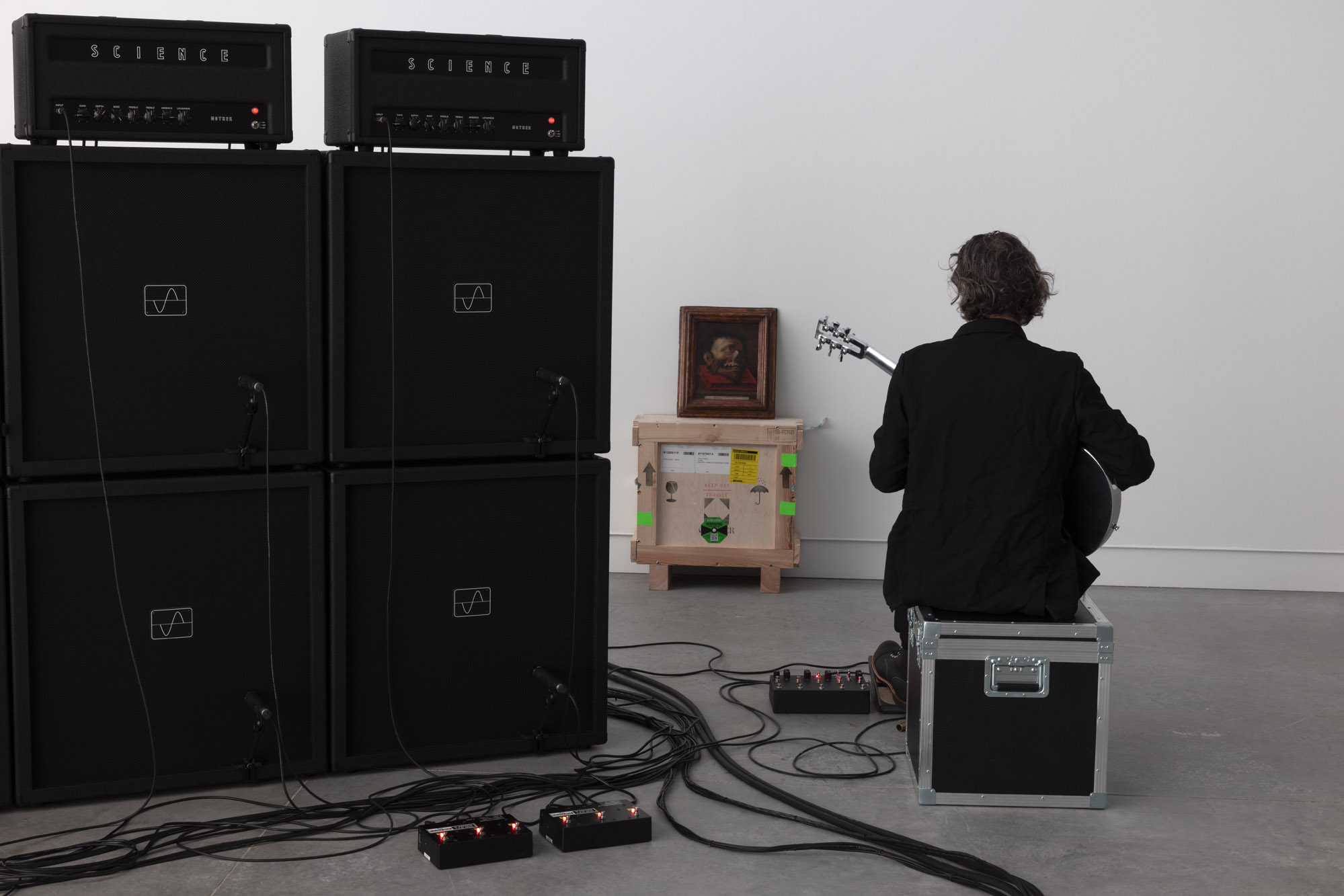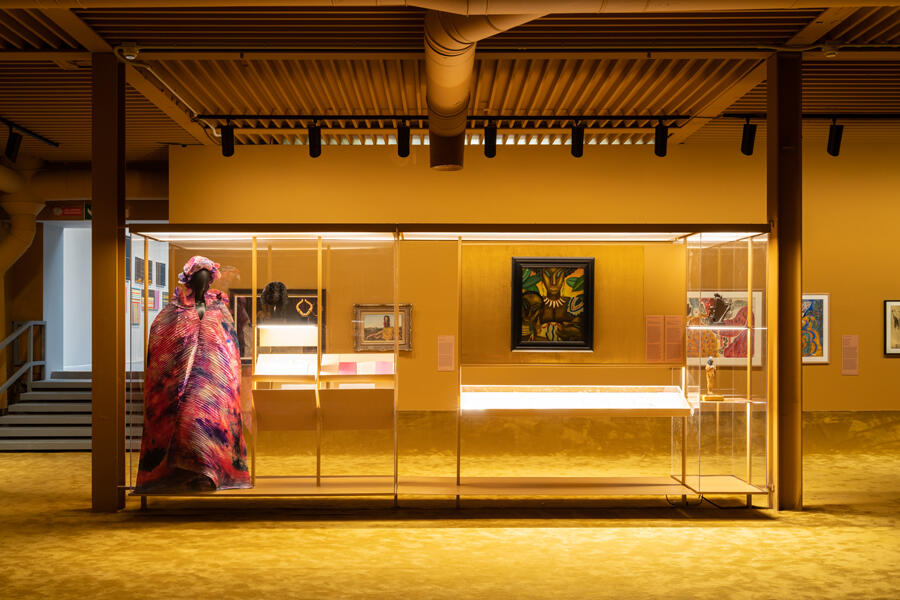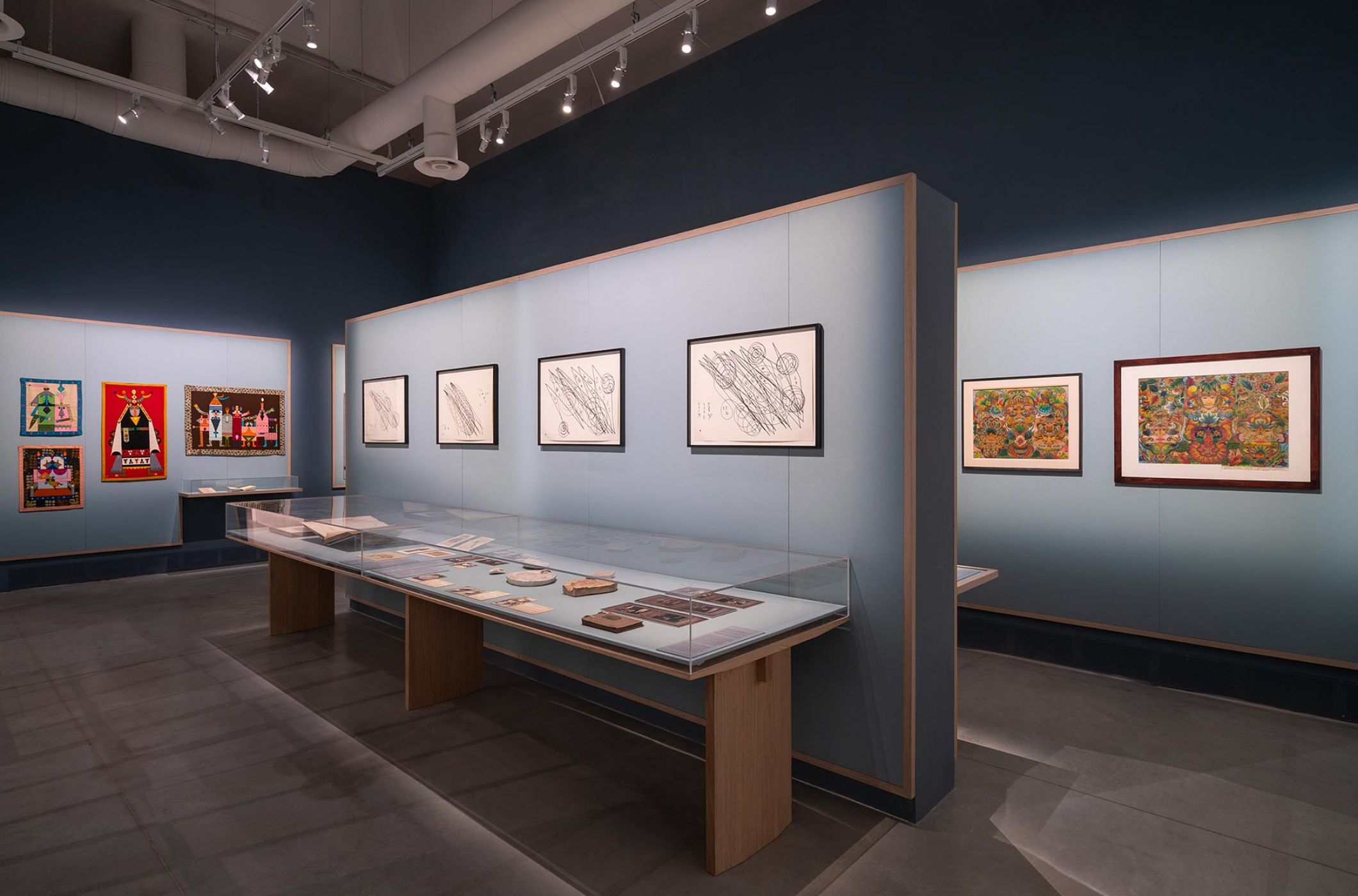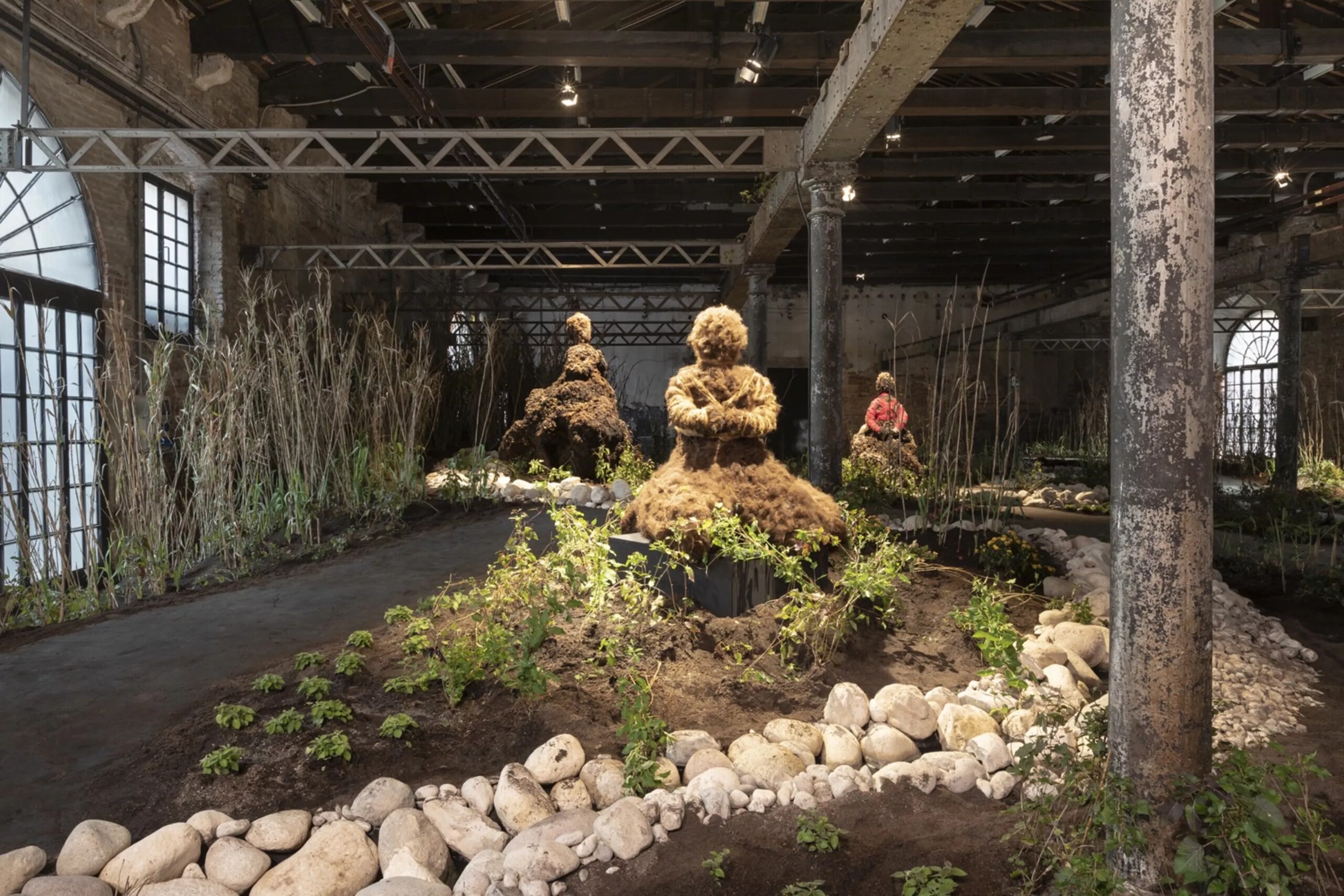The Venice Biennale
Hilary Thurlow
In Venice, global alliances unfurl and national borders are ratified. There are also rare convergences of bourgeois art-loving tourists and insiders LARPing as art professionals who are, in reality, visiting the island for spritzes and a quasi-holiday (i.e., me). By the very structure of the Biennale’s national pavilions and the central exhibition, we’re given a rare opportunity to see soft, cultural diplomacy and geopolitics play out in real time. This year’s iteration saw the 2022 Biennale’s director Cecilia Alemani and Roberto Cicutto, President of La Biennale di Venezia, both put forward their support for war-ravaged Ukraine and condemning Russia’s actions throughout the exhibition’s printed collateral. Russia’s pavilion lies dormant with the curator and artists resigning from their posts prior to the biennale’s opening—a mark of solidarity with Ukraine.
At the 59th La Biennale di Venezia central pavilion’s helm is Italian-born Alemani, whose day job is the Donald R. Mullen, Jr. Director and Chief Curator for High Line Art in New York City. Opened in 2009, the High Line is an experiment in gentrification, bringing commissioned artworks and performances to a former railroad-turned-linear park. Alemani’s most notable project since her 2011 appointment was the installation of Zoe Leonard’s poignant I want a President (1992), just weeks prior to Donald Trump’s electoral victory in 2016. At Venice, the curator takes her cue from The Milk of Dreams, a children’s book by the surrealist artist Leonora Carrington. In Carrington’s fiction the human world and the animal kingdom fold into one. For Alemani, The Milk of Dreams’ loreis a proto premonition beyond the Anthropocene and toward the post-human—a speculative utopian proposition for the world’s future.
Australia, too, has toyed with the Biennale’s soft-diplomatic edge, leveraging our cultural power to beat out sixteen other nations in 1988 for the last permanent spot in the Giardini. In 2015, Australia forged ahead with a new pavilion, designed by Melbourne-based firm Denton Corker Marshal and replacing the original Philip Cox structure. Australia’s black granite box is nestled at the rear of the coveted Giardini square. This year’s offering is Melbourne-based artist Marco Fusinato. His work has been curated by Alexie Glass-Kantor, the executive director of Artspace in Sydney and curator for Art Basel Hong Kong, who has a longstanding working relationship and friendship with the artist. For Fusinato, DESASTRES is a homecoming of sorts. His parents—and more than four centuries of his ancestors—hail from the Belluno province located in the Veneto region just north of Venice. Veneto, like so many other regions in Italy, was ravaged by the tragedies of World War II, leading Fusinato’s parents and brother, Luigi, to migrate to Australia in 1960.
Fusinato’s take on the space is simple. The artist’s whirring, sonic dissidence bleeds outward as you walk toward the pavilion’s entry. There’s no architectural intervention (unlike the Singapore pavilion) working against the pavilion’s architecture, nor is there a set designed to transport visitors elsewhere (such as that seen at France): the walls are white, and the floor remains polished concrete—a stark contrast to Angelica Mesiti’s all-consuming sunken, red amphitheatre. Moving clockwise around the space, you will first encounter an angled LED screen of monumental proportions akin to ones found in stadiums or on billboards. It displays a torrent of images the artist collected during Melbourne’s 260-day lockdown. These images flash rapidly across the screen, responding to the rhythms of Fusinato’s noise. Sourced from various search engines, these images, as the artist has proclaimed, are “fucked”: dead animals, flowers, rubbish, interspersed with obscure historical artworks like Hans Weiditz’s Plague woodcut (1544). Think Aby Warburg’s atlas. There is no narrative to the collage per se but a purposeful recount of a Baudrillardian simulacrum—copies of copies of copies of images that have no apparent origin.
Then there’s a wall of amps to the right-hand side of the screen, emitting Fusinato’s sonic chaos. The climax to this mise-en-scène is Fusinato himself, sitting on an amp case with his pedals and guitar. Beside him is an unmarked painting of a decapitated head resting on a book placed atop its crate. The banderole at the bottom of the painting is derived from Job 6:7 and roughly translates to “The things that my soul refused to touch are as my sorrowful meat”—a statement that alludes to a depression-induced lack of appetite and a recoiling from life’s pleasures. Painted by a member of the Verona born (Veneto region) late-renaissance painter Jacopo Ligozzi’s circle (ca. 1600–1610), the portrait is somewhere between a memento mori and a vanitas painting—a reminder of our mortality and a gentle nod toward to Fusinato’s ancestry.
The connection between the painting, the stream of images and the noise radiating throughout the space is opaque. These three facets seemingly represent a fold in time and hold hazy origin points within Fusinato’s longue durée. When expereinced in tandem we’re given a temporally illogical pathway: the painting’s not attributed to Ligozzi directly but someone in his circle and is from a time too far away to conceive; the images have no constant, linear narrative or source; and the sound—although devised by Fusinato—has a life of its own with no audible structure once released into the space. If a narrative or plot were to be teased out of DESASTRES—a reference to Goya’s series of etchings The Disasters of War/Los desastres de la Guerra (1810–1820)—it would be one of finality, death. The ultimate form of destruction.

Seeing Fusinato with his back turned to his audience, I couldn’t help but feel I was in the bedroom-meets-studio of a petulant teenage boy who’s just discovered nihilism and heard The Clash for the first time. I don’t mean this as a pejorative. There is an endearing quality to Fusinato’s project that is hard to pinpoint precisely. Perhaps it lies in Fusinato’s wilful contrarianism: extending from the work’s intentional divisiveness to the artist’s penchant for a black button-down, trousers and boots—while everyone else is clad in light linen to combat Venice’s harsh summer heat. Unlike the legions of fly-in-fly-out artists who appear in Venice to open their pavilions during vernissage only to quickly disappear and move onto the next exhibition, Fusinato has stayed to see out all two-hundred days of the biennale. Prior to opening, DESASTRES’s was a cause célèbre in the press, touted as an artwork “hated” by stakeholders. I witnessed this polarity in action with swathes of biennale goers quickly plugging their ears with their fingers, panic on their faces, disconcerted by the audible distortion that surrounded them. The sound pulsates, reverberating around the pavilion’s cube. If I slip into the recesses of my memory, I can feel the sound moving through my body like a corporeal epitaph—Fusinato’s residual noise is stamped somewhere inside of me.

Fusinato’s offering bucks many of the key threads loosely tethering the national pavilions: fatigued ideas of futurity, rehashing notions of speculative dystopias and technology’s role in our crisis-plagued world (South Korea, Japan, Italy) and of course foreboding nationalism (Germany, Venezuela). DESASTRES’ lack of nationalism is impressive and a welcomed reprieve. Mesiti’s aforementioned offering for Australia gave a cinematic treatise into democracy, including b-roll shots of Australia’s senate. In the biennale before that, Tracey Moffatt gave a speculative recount of so-called “Australia’s” invasion. By contrast, Fusinato’s reference points hold nothing uniquely Australian. The closest the artist gets is when, in conversation with Glass-Kantor, he notes “I’m going back to exactly the same place my parents migrated from to represent the country they migrated to. There’s a collapse of time… Australia, like Italy, is a recent construct”. His title translates from Spanish to “disaster”, his aesthetic gestures speak to Japanoise, hardcore, punk. A thoughtful spectacle with instant impact. It feels as though Fuisnato and Kantor have stumbled across the formula for the perfect biennale artwork with their simultaneous pastiche and parody.
I do concede that Fusinato is a confusing choice, politically speaking. The list of artists shortlisted alongside Fusinato was a cosmopolitan one: the Berlin-based dancer-choreographer Adam Linder with MUMA’s Hannah Mathews; Bidjara, Ghungalu and Garingbal D Harding with Rotterdam-based-Brisbane-transplant Vivian Ziherl; Blue Mountains-based duo David Haines and Joyce Hinterding with MCA’s Anna Davis and finally Aotearoa/New Zealand-born Patrick Pound and Paris-based, Perth-born, Susan Bright. When announced in 2019, I remember the flurry of gossip circling Fusinato’s commissioning. Another Anna Schwartz artist? Who’s that? A man? A sound artist? For Venice? By contrast, Alemani’s central show and many of the national pavilions work to highlight feminist, queer and gender diverse legacies together with First Nations artists, and the recounting of colonial histories abounds.
The Nordic Pavilion is now the Sámi Pavilion, a gesture of solidarity toward indigenous sovereignty. Fa’a fafine artist Yuki Kihara’s reframing of the French post-impressionist Paul Gaugin for Aotearoa/New Zealand and their initiation of an informal Firsts Solidarity Network bridges a handful national pavilions (Albania, Great Britain, Poland, Nepal and Singapore). Housed within the French Pavilion, British-based Zineb Sedira addresses France’s colonial ties with a historiographical exploration into Algerian cinema. In Poland’s contribution, Małgorzata Mirga-Tas’ lustrous patchwork screens work to rewrite the position of Romani peoples—tangentially yet nonetheless noteworthy. Mirga-Tas is the only artist to have presentations in both the Biennale and documenta15. Again, Simone Leigh’s exposition for the United States interrogates historical records of African diaspora and looks toward new hybrids. Leigh is the first Black woman to represent the United States and the first in the Biennale’s 127-year history to win a Golden Lion for her work in The Milk of Dreams, as is Sonia Boyce who is the first black woman to be chosen for Great Britain’s pavilion, inviting five musicians to share the space alongside her. I could go on.
I don’t mean to dwell on gender parity or take a reductionist identity-led path here, a path that has plagued contemporary art over recent decades. Instead, I posit that perhaps the politics of the art world is moving beyond cheap talk of equal representation and instead instituting methods and frameworks where we see polyphonous, discursive output without the paradox of “othering” by proxy. Alemani’s The Milk of Dreams—an exhibition of predominately women and gender-diverse artists—is not necessarily a show about women or the female experience. Instead, The Milk of Dreams is a show thinking through post-humanism: what defines and differentiates humans from living organisms and their technological counterparts. You could easily walk through The Milk of Dreams, as I did, without persistent reminders of an artist’s gender.

Within Alemani’s central show there are five historical “capsules” that punctuate the commissions by contemporary, living artists—of which there are markedly few. We’re also introduced to a constellation of thinkers who orbit each capsule: science fiction writers Octavia Butler and Ursula K. Le Guin, theorists Rosi Braidotti and Donna Haraway and artist-curator Mirella Bentivoglio. The capsules are demarcated by their visual identities: the walls of Corps Orbite in the Giardini oscillate been paint and fabric in a blue-grey hue. The Witch’s Cradle is gold: shagpile carpet and walls with matching display cabinets all in a monochromatic golden tone. In many ways The Milk of Dreams reads more as the kind of show that art museum curators dream of doing, only to be curtailed by institutional KPIs and accelerated lead times, than the spectacle-laden biennale to which we’ve become accustomed. Alemani’s cerebral gesture toward the past feels radical. Sure, a common trope in recent years for biennale curators is to pluck a few obscure artists from yesteryear as an anachronic gesture—albeit with varying degrees of success.

At their core, however, biennales conventionally encourage a cycle of constant newness, of never-ceasing production, of artists who curators (and collectors) deem to be on the precipice of stardom, or artists who already sit firmly within the circuit of the international art elite. As the late auteur Okwui Enwezor told us, biennales are places for artworks of “biennale scale”, referencing artworks of not only excessive size but also excessive budget and manpower. Yet here we have a considered exposition of artworks by lesser-known, dead artists from the 19th and 20th centuries, where a working knowledge of the art-historical canon and its omissions is a baseline for entry. Many of these artists are painters. Take American outsider Minnie Evans’ (1892 – 1987) Untitled (1967), a lurid portrait of woman, complete with cosmological flourishes, for example. Or Argentinian surrealist Eileen Agar’s (1899-1991) thick impasto Wisdom Teeth (c. 1960s), which falls somewhere between a landscape and a dreamscape. To the naked, untrained eye these works are merely messy heirlooms Alemani has unearthed to tell her story. But underlyingly Alemani’s move toward the historical is a chiding of the push toward contemporary art as flashy entertainment pandering to our collective attention deficit (see Sun Yuan and Peng You’s Can’t Help Myself (2016) at Ralph Rugoff’s 2019 Venice Biennale)—while also doing the revisionist work many art historians and curators talk about doing but never quite do.

Yet Alemani’s diversion does more than offer a weighty attempt to redress art histories while thinking through present plights. Pragmatically speaking—and where the show’s enduring legacy may ultimately lie—something missing here is within its logistical framework: an experiment in curating under climate crisis. Admittedly, environmentally-charged dialogue in art has always bored me, aside from its antithetical inclinations (is there such a thing as climate-conscious art production? Isn’t it a mere contradiction in terms?), bar a few exceptions à la Sydney-based stalwart Bonita Ely and, say, the English architectural collective Cooking Sections. Curators have become consumed with working environmental challenges into their shows (Stefanie Rosenthal’s 2019 Garden of Earthly Delights at Berlin’s Gropius Bauis an obvious example) with seemingly little thought given to the environmental impact of the production behind the exhibition and, instead, centring their argument on the environmental artworks themselves.
Alemani neither directly heightens climate anxieties nor explicitly mentions them, although the Arsenale’s finale—and arguably only trial in spectacle—is Precious Okoyomon’s dystopian garden To See the Earth Before the End of the World (2022). The work’s previous iteration was commissioned by Serpentine Galleries in 2019 (note: a reworking of previous work and not a new commission). Okoyomon builds a landscape complete with dirt, flowers, rocks, butterfly’s, overgrown sugarcane, wild kudzu and babbling streams; interspersed throughout the living scene are human-sized scarecrows-like figures in the shape of angels. The work sits between multiple times: carrying reminders of the transatlantic slave trade but also speculating on a world without humans. Zheng Bo’s video Le Sacre du printemps (Tandvärkstallen) (2022), which stems from his ongoing Pteridophilia project (2016) that is interested in the erotic possibilities between ferns and queer men, is another work that doesn’t touch on climate directly but hints toward it.

The Milk of Dreams gives us the beginnings of a template as to how to work though the prescient issue of climate change and exhibition-making: loaning works alongside the commissioning of small productions, turning to the past instead of searching for constant newness. Thinking through geographical paths of freight—in Alemanni’s and her team’s case, the works were sourced from predominately European collections, even if not by European artists. Admittedly, there are few artists hailing from south of the equator, with not one Australian or Pasifika artist included in Alemani’s enquiry: this caveat never felt like a lack or a geographical oversight but rather a logistical constraint. The nature of many of the works has meant fewer studio visits by the curatorium and fewer artists flying in for Vernissage—in part, a by-product of the Covid-19 pandemic. There is a slowness to Alemani’s approach to exhibition-making, one that rebukes our persistent desire-yet-distaste for acceleration. While for the contrarian Fusinato there is no linear time and therefore no future, Alemani’s narrative offers a transient view through into a future, alternate world where humans and animals are on equal footing and time.
Hilary Thurlow is a PhD candidate in Art History & Theory at Monash University. Her research centres on the work of the Cuban artist, Tania Bruguera.